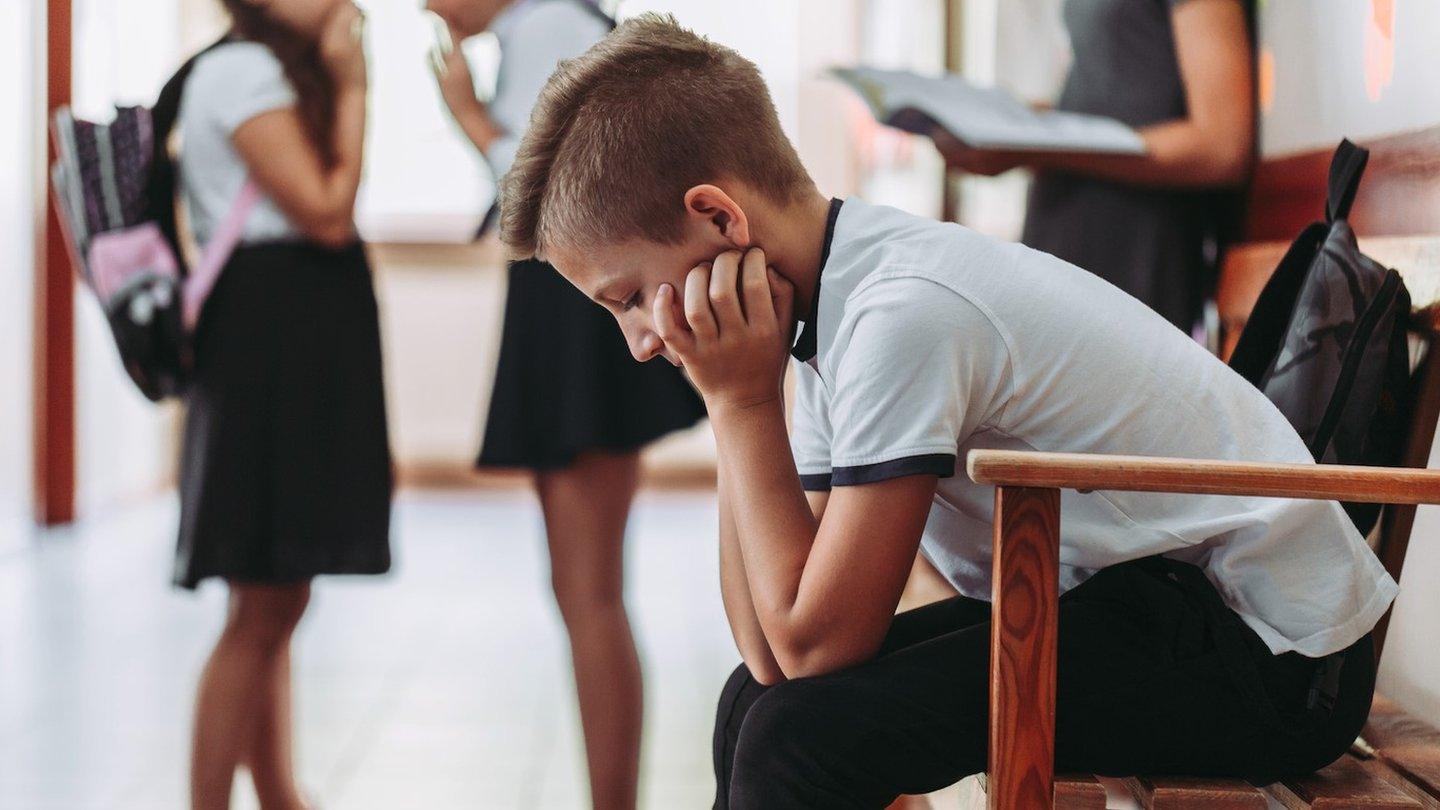Parents of excluded pupils say system 'failed them'
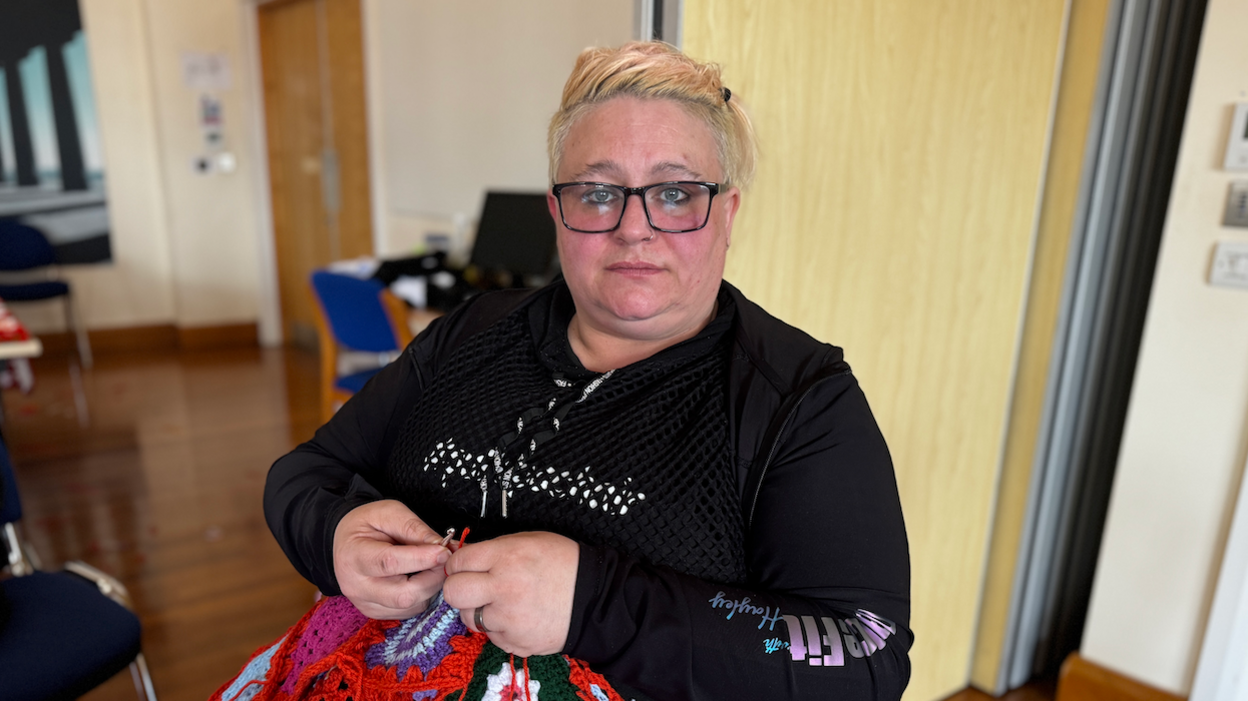
Washington parent Hayley Hudson's son now studies at The Link after being excluded
- Published
Parents of pupils who were excluded from primary and secondary schools over behaviour say the system has "failed" them.
The group of Sunderland parents are calling on the government to improve resources for mainstream schools.
Official figures show the North East had the highest suspension and exclusion rates in England in the spring 2022/23 term.
The Department for Education (DfE) said it continued to provide "targeted support" to schools to help "improve behaviour" and reduce exclusions.
The parents, whose children now attend The Link in Pallion, external - a school which offers up to 196 places to excluded primary and secondary pupils - are crocheting a huge blanket as part of their campaign to raise awareness.
The blanket will be made up of exactly 2,999 pieces of fabric, which represents the number of children who were excluded, on average, each school day in the 2021/22 academic year.

The blanket will be used to help raise awareness of the impact of school exclusions
Karen Longstaff said her son was "an empty shell" after he was excluded from primary school aged seven.
"There was no human being there," she said.
The mother, from Sunderland, told the BBC the now 11-year-old had become "quiet and withdrawn" and did not want to have any friends.
Ms Longstaff said her son's previous school had been "extremely supportive" and sought "additional help and behaviour support", but because those resources were "so busy" they could not intervene in time.
This resulted in her son's permanent exclusion.
'Education suffered'
Another parent, Hayley Hudson from Washington, said her son was first excluded when he was just eight years old.
She said he had struggled to cope with the "busy environment", which led to further problems, and eventually his removal from mainstream education.
"Mainstream [school] tended to, rather than deal with the issues that my son had, remove him from the classroom, so his education suffered," she said.
"He was failing to reach his academic potential and missing out on the milestones he should have [been] reaching with the year group he was in."
She said that people often blame an excluded child’s parents, but added the standard education system was not set up to deal with those with complex needs, despite exclusion figures rising.
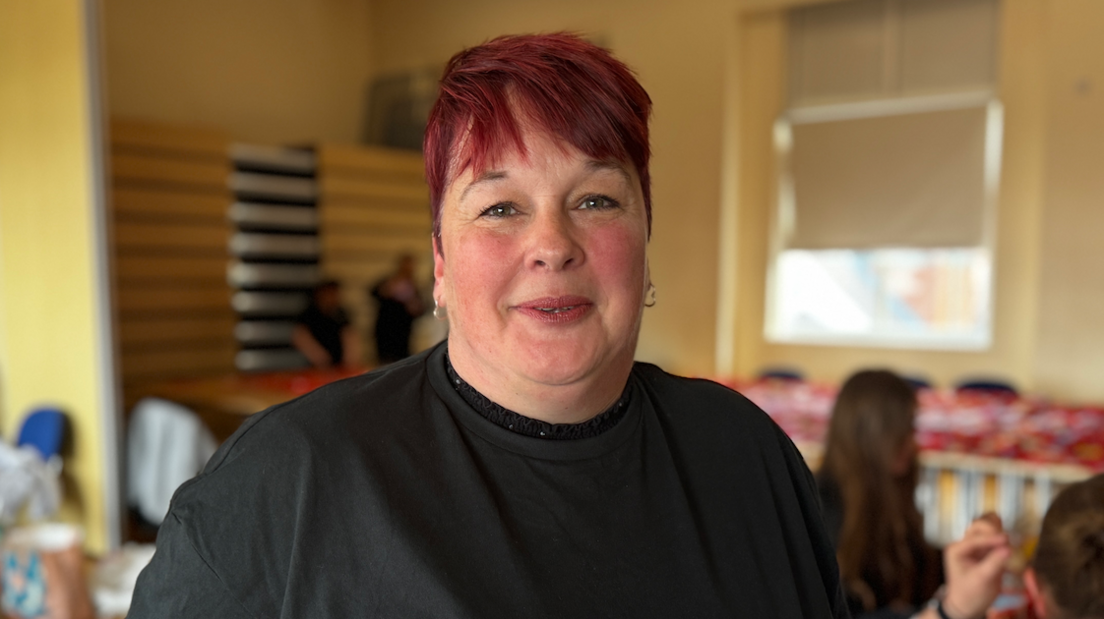
Donna Walker has worked at The Link in Pallion, Sunderland, for the last seven years
The Link's head teacher Donna Walker said her school was often at full capacity, and there was a waiting list for excluded pupils, or those at risk of exclusion, to enrol.
She said the school adopted an alternative approach by understanding individual needs, which meant children thrived where they may not have been able to before.
"[It's] having open conversations about what they need and what they want, and not just labelling these children as naughty or issues with behaviour," she said.
She added she believed mainstream schools were "trying their best" but the curriculum was "too traditional" and "not fit for purpose", and urged the government to update it.
'Schools are struggling'
The concerns from parents and teachers on Wearside come as teaching unions earlier this year claimed schools did not have enough resources to support pupils.
DfE figures showed suspensions across schools in England had risen by almost three-quarters compared with spring 2019, before the Covid-19 pandemic.
The previous highest total number of suspensions in a single academic year was in 2021/22, at 578,280.
However, according to the most recent data available, external there were 511,270 suspensions in the autumn and spring terms of the 2022/23 academic year alone.
Dr Sarah Martin-Denham, associate professor of care and education at the University of Sunderland, has studied the impact of exclusion on children.
She is leading the campaign and will take the blanket on a tour of national local authorities, schools and community groups in England.
"Schools are struggling with resources and [this is] an opportunity to share what works well, and [also] how we can bring down this really high suspension and exclusion rate, particularly in the North East," she said.
"It's really clear that what children need is relationships and connections, any time away from school can cause challenges for children in returning."
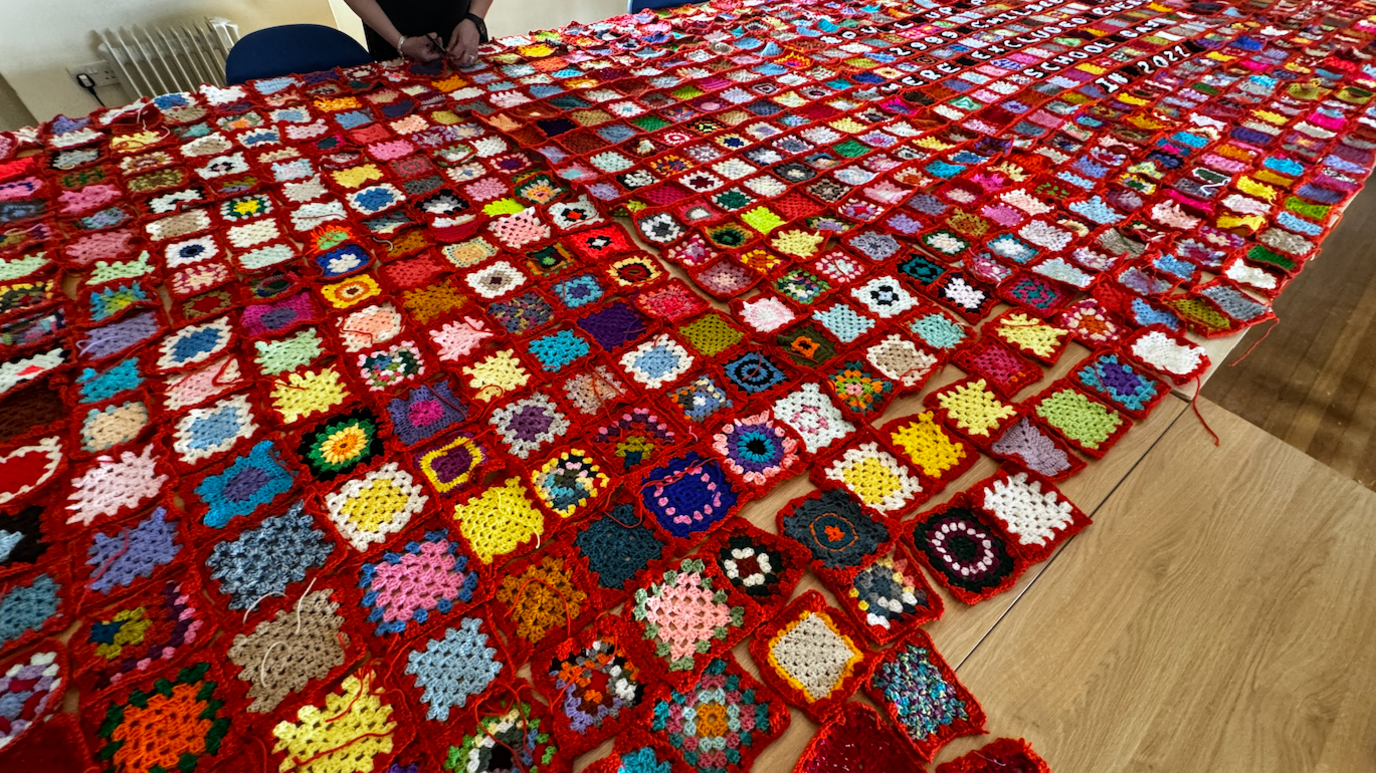
Tiles were crocheted and donated from people across the UK and Europe
A DfE spokesperson said the government made it "very clear" it backed head teachers to use exclusions "where required" to provide "calm and supportive environments for children to learn in".
The spokesperson said the government was providing "targeted support to schools" to "help improve behaviour, attendance and reduce the risk of exclusions".
It was also investing £10m in a programme to help tackle the issue, the spokesperson said.
The DfE added that a decision to suspend a pupil must be "lawful, reasonable and fair", and that there was "no right number" but permanent exclusions should only be used "when absolutely necessary, as a last resort" and "should not mean exclusion from education".
Follow BBC Sunderland on X (formerly Twitter), external, Facebook, external and Instagram, external. Send your story ideas to northeastandcumbria@bbc.co.uk.
Related topics
- Published20 March 2018
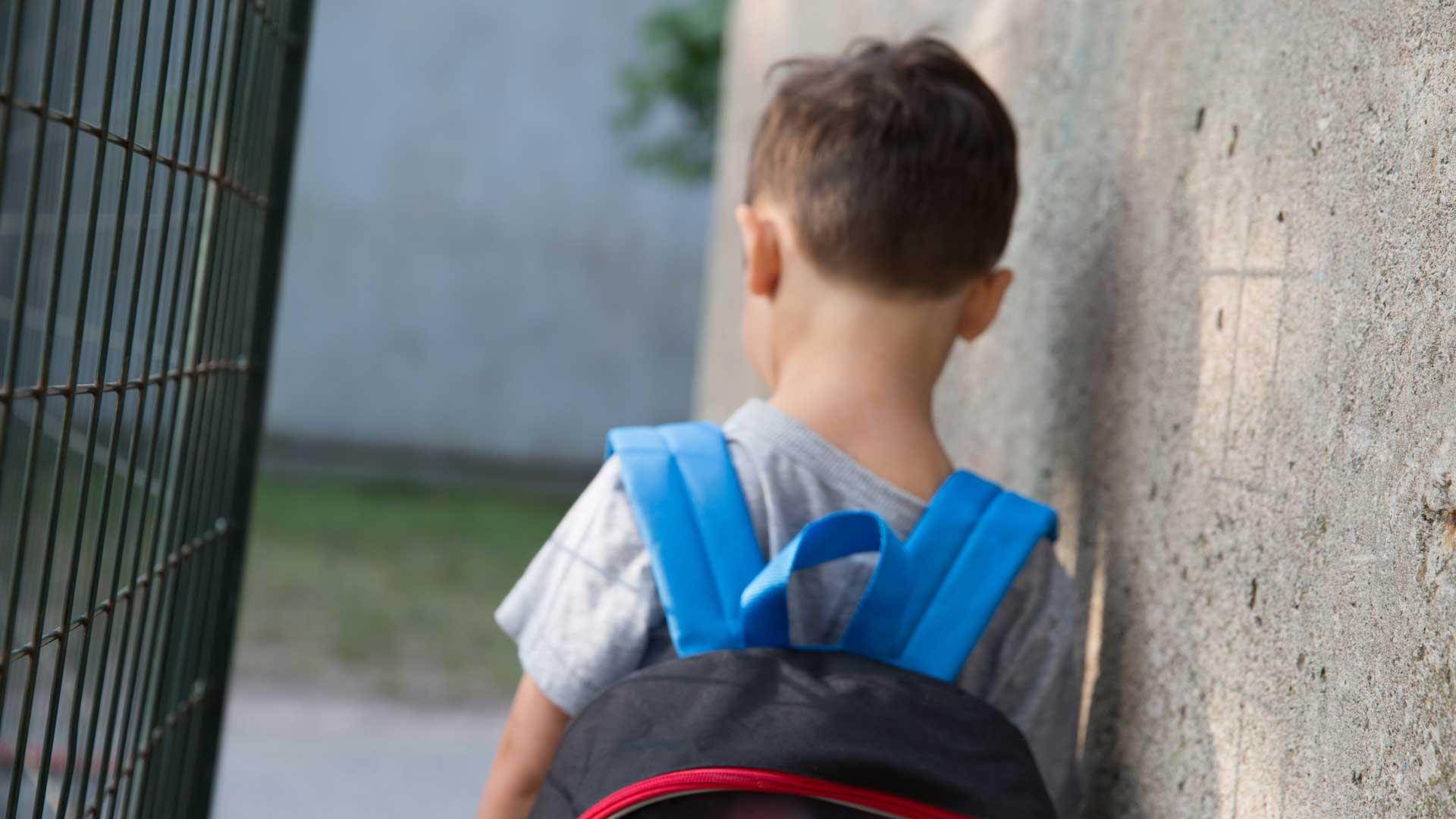
- Published18 April 2024
